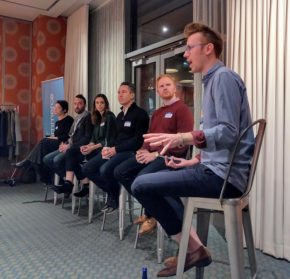
The affiliate and content commerce landscape is constantly shifting, and recent Google updates have everyone talking: Is search a done deal, or is it just changing?
For publishers, organic search traffic has always been a cornerstone of monetization. But with algorithm changes impacting visibility, many are wondering if search is still a reliable channel for discovery and revenue—or if it’s time to move on to something new.
Search and Content Commerce Are Evolving
Google’s latest updates have reinforced a core truth: Quality and relevance matter most. While some publishers have seen their rankings drop, those consistently prioritizing user-centric, high-quality content have mostly remained stable.
At the same time, the digital landscape is expanding, creating loads of opportunity. Platforms like TikTok, Instagram, YouTube, and newsletters are turning into major players when it comes to discovering new products and brands.
Reducing publishers’ dependence on Google alone is undeniably a good thing. The key challenge is finding a way to invest in a multi-channel strategy and drive monetization while keeping editorial integrity intact. Plus, with best practices changing all the time, it’s crucial to stay agile and adapt. A balancing act, to be sure.
Additional challenges include:
- The ongoing need for SEO optimization as Google’s algorithm continues to evolve.
- AI-generated content—while promising—requires careful oversight to maintain authenticity and originality.
- The importance of first-party data in building direct audience relationships, such as through newsletters and exclusive content.
How Are Publishers Responding?
We’re seeing three distinct strategies emerge as publishers navigate these shifts:
- Diversification: Publishers are expanding beyond search by embracing social media, email marketing, and direct audience-building efforts. A multi-channel approach reduces risk and builds long-term stability.
- Adaptation: Others are doubling down on SEO, adjusting strategies to align with Google’s evolving requirements. Those who refine their approach and stay ahead of trends can still see strong organic traffic.
- A Hybrid Approach: The smartest publishers are balancing both—diversifying traffic sources while continuing to optimize for search to maintain visibility across multiple channels.
Along the way, there are a few missteps that can hinder long-term success. We’d caution publishers to avoid two things in particular:
Thinking they can “SEO-proof” their content rather than diversifying
Some publishers are making overcorrections in response to Google’s updates, taking drastic actions that may cause more harm than good. Fully deindexing monetized content, eliminating freelancers, or ending all third-party contracts might seem like the right move, but they can weaken content programs and limit revenue potential.
Not tracking and optimizing performance
Performance tracking is critical, yet many publishers aren’t measuring KPIs effectively or optimizing content based on real insights. One key area of neglect? Data sharing with partners.
Without sharing commerce content pageview data with affiliates and networks, it becomes much harder to get a full-funnel picture of performance and properly optimize content. The best publishers treat their affiliate and brand partners as collaborators—offering transparency to drive better results across the board.
So, What’s Stack’s Take on Things?
Search isn’t declining. Behaviors are shifting, but search itself remains an essential part of how people discover information, products, and brands. More content discovery channels are entering the mix—Reddit, Amazon, we haven’t even touched on AI-powered assistants—but Google dominates, at least today.
We see firsthand how content commerce publishers are navigating these changes. The most successful ones are not relying on a single strategy but rather blending multiple approaches to remain competitive.
Here’s what’s working right now:
✅ Concise, well-structured content that gives readers just enough information for the product type or price point to guide purchase decisions.
✅ Building and nurturing audiences through email newsletters, delivering relevant deals and content.
✅ Prioritizing quality over quantity when it comes to content production.
✅ Updating and repurposing existing content into different formats, such as blogs, videos, and social media posts.
At Stack, we help publishers seamlessly integrate commerce into their content strategies while ensuring monetization remains natural and value-driven. Through diverse product offerings, direct support, and strategic insights, we empower publishers to reduce their reliance on any single platform—whether it’s Google, Amazon, or social media.
As a content provider, we have consistently focused on delivering high-quality and relevant content that enhances the user experience. Although the landscape is evolving, the core principles of providing helpful and well-researched content remain the same. Publishers who prioritize quality, diversify their traffic sources, and optimize for the new search ecosystem will thrive in the long run.
The key takeaway? Think long-term and multifaceted. Avoid chasing short-term SEO tactics and instead focus on building brand equity, strengthening audience relationships, and staying ahead of emerging commerce trends.
Talk to Us
How is your team adapting to these shifts in content commerce? We’d love to hear your thoughts—reach out to discuss how to future-proof your content strategy.


